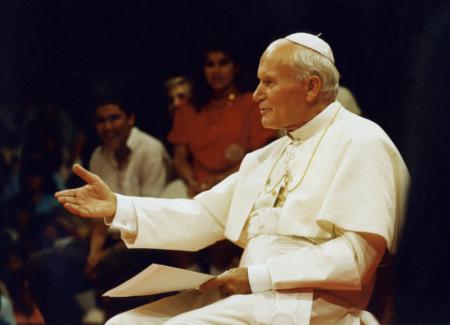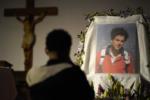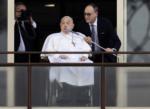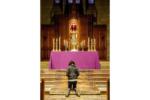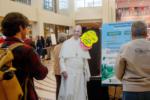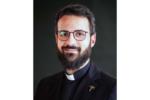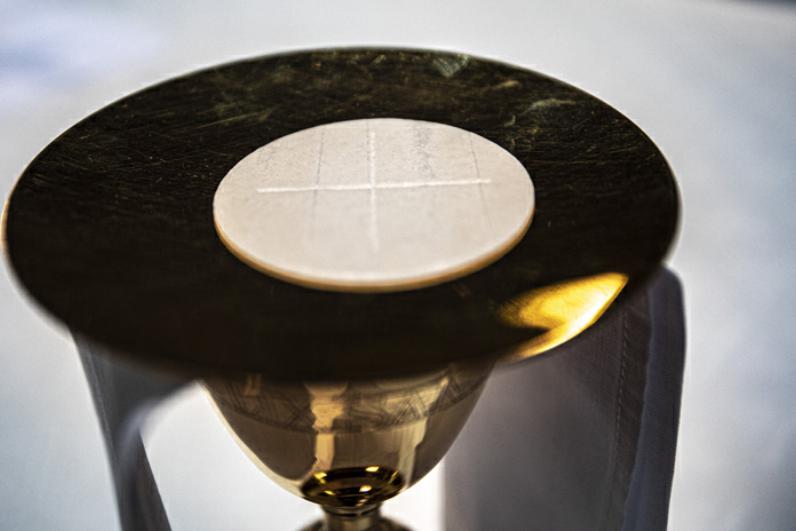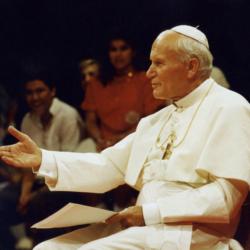Communion lessons
It is hard to believe that people once considered the Catholic press boring.
At least when it comes to opinions, as opposed to news, it never lacks for controversy. Nothing is spared, from pope to priest and from left to right, with op-ed agreement only to be found, and here I paraphrase a Tom Lehrer lyric, in that "everybody hates the USCCB." Should you seek out these opinions online, the vitriol is even worse.
I can always get an ironic laugh from those who make a habit of reading this stuff when I recall the lyrics of that 1960s-era Church staple, "They'll Know We Are Christians by Our Love."
For months, the back and forth among the opinionated has been about whether the bishops would, or should, censure Catholic politicians who support abortion, particularly President Joe Biden, perhaps by denying them holy Communion.
This debate was fueled, to be sure, by the call from some bishops to do exactly that. The Vatican weighed in, however, and despite a lively debate at their June meeting, it seemed obvious that this was not going to happen for a variety of reasons.
Bishop Kevin C. Rhoades of the Diocese of Fort Wayne-South Bend, Indiana, and chair of the bishops' doctrine committee made it clear that the document he was drafting was not going to be naming or shaming specific politicians or even groups of Catholics.
The statement he delivered, titled "The Mystery of the Eucharist in the Life of the Church," was overwhelmingly approved at the bishops' November meeting with little public debate.
What debate there was may have taken place in executive session, but even before then the bishops were sending signals that they planned to support the document with only modest modifications.
It does talk about the proper reception of the Eucharist, and the fact that some sins (mortal) "rupture the communion we share with God and the Church." Someone in such a state of sin should not present himself or herself for Communion. Let all who have ears, let us hear.
The bigger challenge the statement hopes to address is Catholic understanding of, and appreciation for, the Eucharist and the communion it signifies. This is why the bishops are also planning a eucharistic revival from 2022 until a national congress in 2024. The Eucharist statement just approved may be the teaching document for this congress.
This revival is intended to impact all parishes and dioceses in our country over the next three years, and I wish it all the best.
The necessity for such a revival underscores an ongoing failing of our Church, however, which is the lack of continuous Catholic faith formation. Most Catholics received formal education in their childhood. They may be devout or disengaged, but they are often thinking in childhood categories. As St. Paul advises, at a certain point we need to put away childish things.
There are two ways that ongoing faith formation is likely to touch the majority of Mass-attending Catholics: the homily and Catholic media. The Catholic press in particular is the most widespread means of Catholic faith formation for adults.
News stories explain what the Church teaches and how it impacts the controversies and decisions that are visible every day. These reports implicitly or explicitly teach the principles of the faith and, more importantly, their relevance.
There is nothing flashy about homilies or diocesan newspapers, but they are the foot in the door. When it comes to talking about the sacraments, social teaching, morality, and more, they are where the invitation is extended to grow in appreciation and knowledge for what it is we profess to believe.
- Greg Erlandson is director and editor-in-chief of Catholic News Service.
